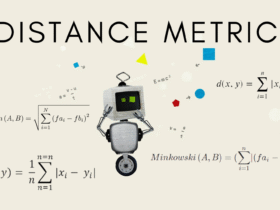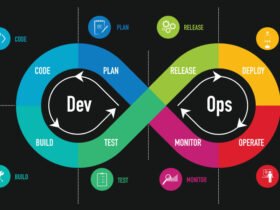Introduction
In 2024, the role of data science in enhancing user experience (UX) has become increasingly pivotal as businesses recognise the value of leveraging data to understand and meet user needs effectively. In fact, one of the main reasons for which data science technologies are being employed across business segments is the ability of these technologies to provide actionable inputs on customer behaviour and trends, which are used by business strategists and decision makers for perfecting their customer-building initiatives. In commercialised cities, data science skills are cherished as much by non-technical personnel as by technical personnel. Thus, a Data Science Course in Chennai, for example, will find as many enrolments from business professionals as from technical professionals.
How Data Science Enhances User Experience
Here are several ways data science contributes to enhancing UX:
- Personalisation: Data science enables businesses to analyse user data to understand individual preferences, behaviours, and demographics. By leveraging this data, companies can tailor their products or services to provide personalised experiences for users. Whether it is recommending relevant content, suggesting products, or customising user interfaces, personalisation enhances UX by making interactions more relevant and engaging.
- Predictive Analytics: Data science techniques such as predictive analytics help businesses anticipate user needs and behaviour. By analysing past user interactions and patterns, predictive models can forecast future actions, allowing companies to proactively address user concerns, provide timely assistance, and offer relevant recommendations. This proactive approach enhances UX by minimising friction and providing seamless experiences. Predictive analysis is a data science discipline that is applied across all business segments and industries for various purposes: from assessing the efficacy of advertising strategies to preventing customer churn and from foreseeing threat vectors to pre-empting competition. No Data Science Courseis complete or inclusive that fails to offer a substantial coverage on predictive analytics.
- User Journey Optimisation: Data science enables businesses to analyse user journeys across various touchpoints and identify pain points or areas for improvement. By understanding how users navigate through products or services, companies can optimise user flows, streamline processes, and eliminate bottlenecks to create smoother and more intuitive experiences.
- Sentiment Analysis: With advancements in natural language processing (NLP), data science facilitates sentiment analysis of user feedback, reviews, and social media interactions. By extracting insights from text data, businesses can gauge user sentiment, identify common pain points, and address issues promptly. Sentiment analysis helps companies understand user perceptions and emotions, enabling them to fine-tune their offerings to better meet user expectations and preferences. The efficiency of sentiment analysis as a means for promoting business is becoming increasingly popular. In commercialised cities, customer psychology and sentiment analysis are being included in courses meant for business professionals. Thus, a Data Science Course in Chennaithat is tailored for business analysts and strategists will include a focused coverage on sentiment analysis.
- A/B Testing and Experimentation: Data science enables A/B testing and experimentation, allowing businesses to compare different variations of UX elements and measure their impact on user behaviour. By conducting controlled experiments and analysing results, companies can make data-driven decisions to optimise UX design, layout, content, and features, ultimately improving user satisfaction and engagement.
- Accessibility and Inclusivity: Data science can contribute to enhancing accessibility and inclusivity in UX design. Business professionals who have acquired skills in analysing user data and feedback, identifying accessibility barriers faced by different user groups, such as those with disabilities, and implementing solutions to make products or services more inclusive are extensively being employed by organisations. This may involve optimising interfaces for screen readers, improving colour contrast for better readability, or providing alternative navigation options. A Data Science Coursefor business strategists and analysts will equip learners with such skills.
- Performance Optimisation: Data science techniques can help businesses monitor and optimise the performance of digital products or services. By analysing user interactions and system metrics, companies can identify performance bottlenecks, optimise loading times, and ensure smooth operation across various devices and platforms. Performance optimisation is essential for delivering a seamless and responsive user experience.
Summary
Overall, data science plays a crucial role in enhancing UX by enabling businesses to understand user behaviour, personalise interactions, optimise processes, and iterate on design improvements continuously. By leveraging data-driven insights, companies can create more intuitive, engaging, and user-centric experiences that drive satisfaction, loyalty, and business success. Thus, it is a definite career booster for business professionals to build data science skills by enrolling for a Data Science Course or through self-efforts such as procuring on-line certifications in data science technologies.
BUSINESS DETAILS:
NAME: ExcelR- Data Science, Data Analyst, Business Analyst Course Training Chennai
ADDRESS: 857, Poonamallee High Rd, Kilpauk, Chennai, Tamil Nadu 600010
Phone: 8591364838
Email- enquiry@excelr.com
WORKING HOURS: MON-SAT [10AM-7PM]










